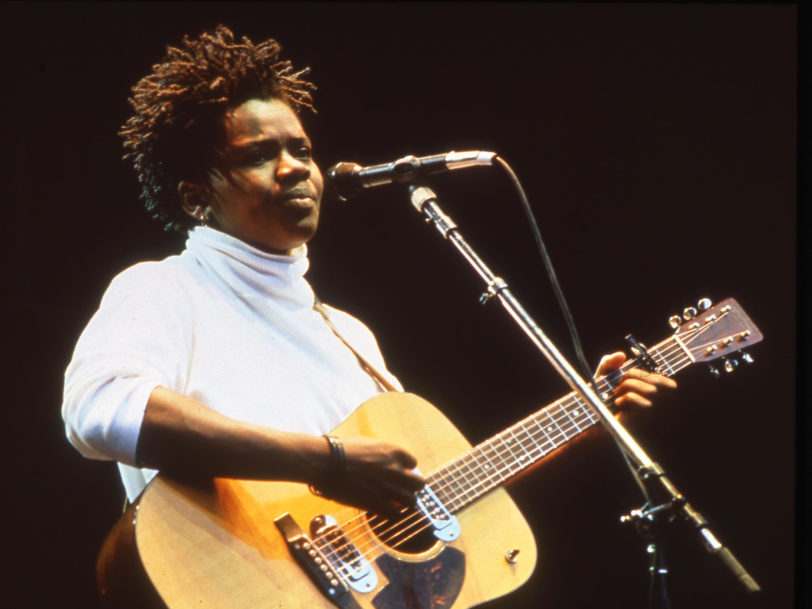Born on 30 March 1964, Tracy Chapman began making waves in the late 80s with her authentic brand of confessional folk-pop. Now a multi-platinum-selling, Grammy Award-winning artist, her career spans over three decades and consists of eight exquisite full-length studio albums, making her one of the most acclaimed singer-songwriters of her generation.
Listen to the best of Tracy Chapman here.
Talkin’ ’bout a revolution: a fledgling star
Brian Koppelman, a fellow-student at Tufts University, Boston, was one of the first people to see the potential bursting from Tracy Chapman and her music. Koppelman’s father, Charles – now a renowned music exec – owned a successful music publishing company, and Brian offered to share Chapman’s work with him. Tracy never saw the gesture as anything serious; Charles Koppelman, however, was keen to promote her remarkable talent. After getting his hands on a demo tape of Talkin’ ’Bout A Revolution, he quickly began taking it to radio stations. Tracy was soon picked up by Elektra Records, and signed a deal with the label in 1987.
At this time, the soft-spoken singer had little to show for herself and was seemingly unaware of her own extraordinary capabilities. Soon, however, she would release her eponymous debut album, changing her life forever.




